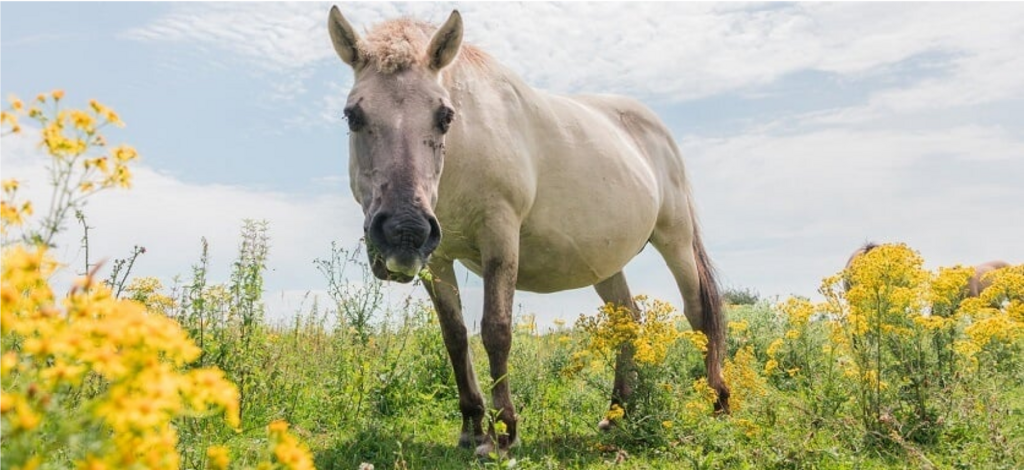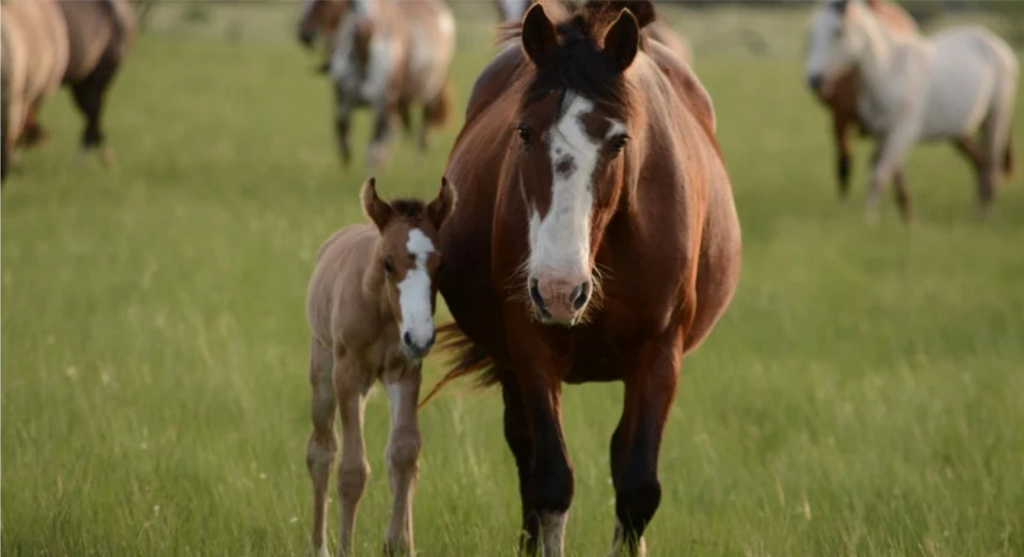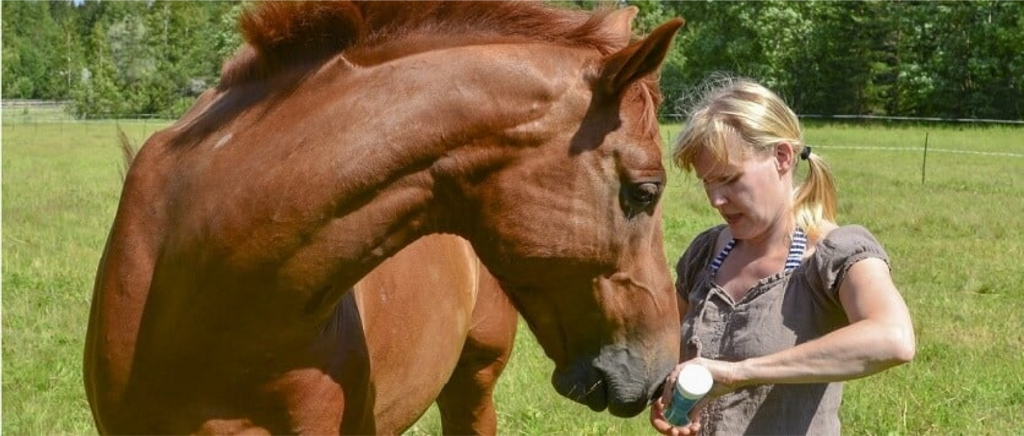Last Updated: 03/06/2025
Horse Worming Guide
Learn about worming horses: age, frequency, and rotational advice from our vet guide!
Author: Dr Teagan Lever BVSc (Hons)
Reading Time: 25 minutes - medium read
Worried about worming your horse? It's a common concern among horse owners. While it might seem like a messy chore, regular worming is crucial to your horse's health. Let's dive into the importance of worming and explore some helpful tips to make the process easier.
Why is Worming Your Horse Important?
Right now around Australia horse paddocks are full of worm larvae and their eggs, just waiting to infest your horse. Depending on the type of worm and how many are present, worm infestations in horses can range from causing no concerns, right through to weight loss, ill thrift, poor condition, diarrhoea, constipation, colic and death. So now that we've got your attention, let's take a look at some of the common culprits a little more closely!
Strongyles
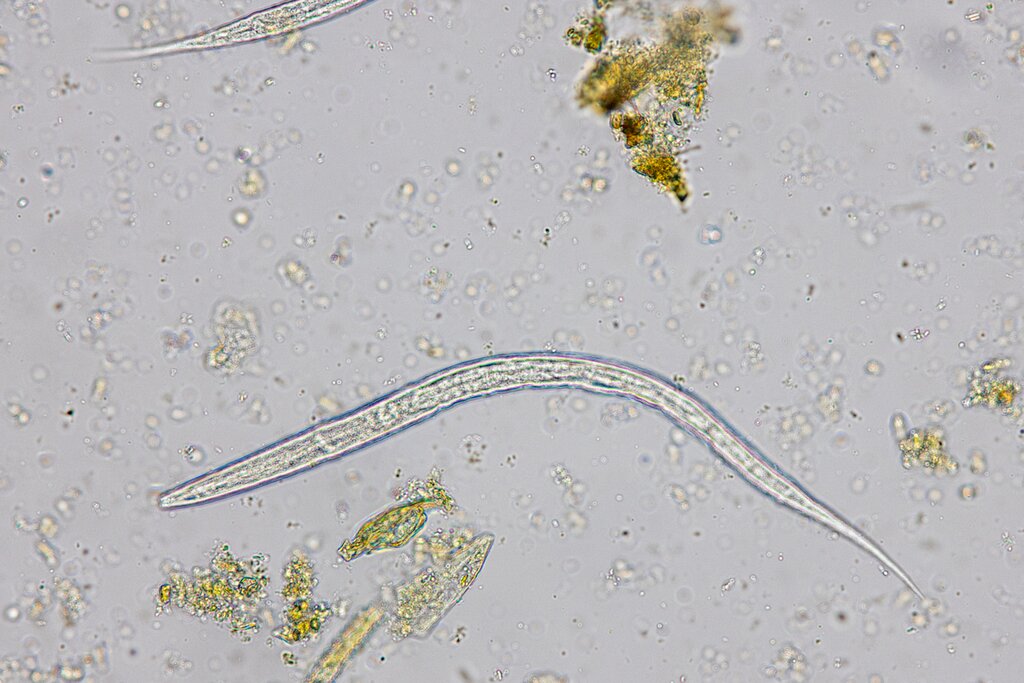
Large Strongyles
Also known as blood worms and red worms, large strongyles (Strongylus vulgaris) are thankfully fairly rare nowadays due to the prevalence of effective worming treatments available. Larval stages of S. vulgaris migrate from the gut to the intestinal arteries in liver, sometimes resulting in colic or fatal haemorrhage.
Small Strongyles
Often referred to as cyathostomes, these small worms are really common and a very important parasite to take care of. After being ingested in feed, cyathastome larvae encyst in the walls of the intestine, emerging after a period of between one month and two and a half years to mature into adults in the intestines. Infestations with cyathastomes can cause ill thrift and potentially fatal colic, particularly if the larvae erupt 'en masse' from the gut wall.
Large Roundworms
Otherwise known as ascarids, the scientific name for large roundworms is Parascaris equorum. These spaghetti like worms are commonly found in foals and can cause lung damage and intestinal blockages. After their eggs are ingested with feed, large roundworm larvae hatch and go for a magical mystery tour through your horse's body. The larvae migrate through the gut wall to the liver, then via the heart to the lungs where they are eventually coughed up and swallowed and arrive back in the small intestine. Movement of the larvae through the lungs can result in permanent tissue damage, while large numbers of adult worms in the intestines can cause life threatening blockages. Roundworm eggs can survive for up to ten years on pastures!
Tapeworms
Horse tapeworms (Anplocephala perfoliata) affect horses of all ages and classes, and are suspected to be a common cause of ill thrift, diarrhoea and colic. These worms begin their lives as larvae within the pasture mite, which is then inadvertently eaten by horses while grazing. Once ingested tapeworm larvae develop into adults in the horse's intestine, potentially resulting in colic. Adult worms shed their eggs in segments in the manure which can be easily seen by the naked eye.
Pinworms
Named for their slender, pin like appearance, equine pinworms (Oxyuris equi) are less serious, generally just causing irritation and itchiness under the tail area. Horses with these worms are often seen madly rubbing their hindquarters against fences and trees to get some relief from itching.
Bots
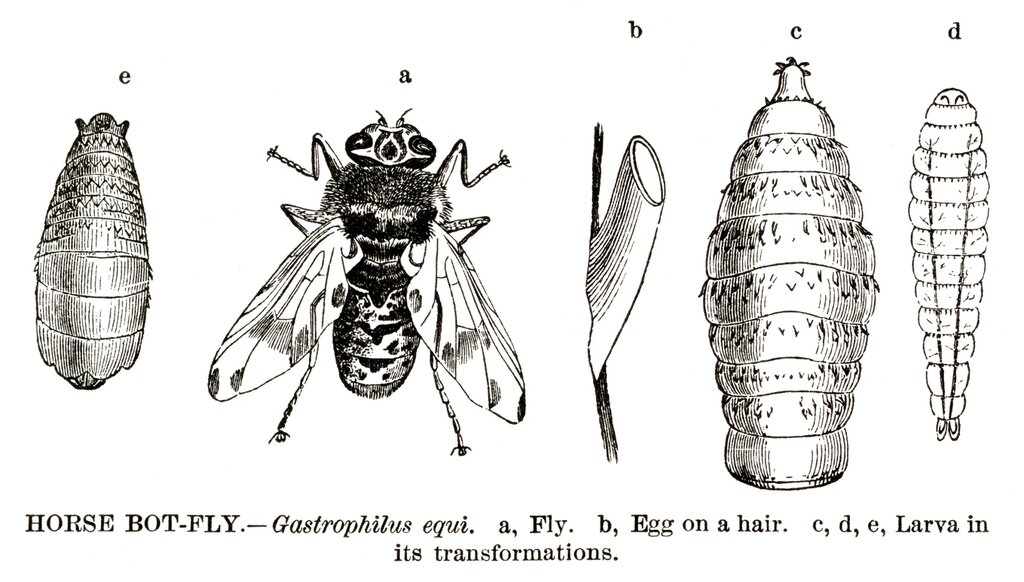
Adult bot flies (Gastrophilus spp.) lay their small, sticky yellow eggs on the flanks, face and fetlocks of horses during the warmer months. These eggs then hatch into larvae, which enter the mouth causing ulcers. From the mouth the bot fly larvae move on to the stomach and mature, eventually being passed in the horse's manure where they pupate and emerge as adult flies. Infestation with bot flies affects all horses and can cause a wide range of symptoms including colic, weight loss, mouth ulcers and bad temper.
Resistant worms and how to avoid them
Historically horse owners were advised simply to pick a worming paste and administer it to their horse every six to eight weeks. Over time, this overuse of worming drugs (anthelmintics) has led to the evolution of worm species who have become resistant to many of the commonly used antihelmintic drugs available.
While there are a number of worming strategies that can be used to reduce antihelmintic resistance in parasites that affect horses, effective pasture management strategies are also crucial. Simple strategies such as regular removal of manure (at least twice weekly), avoiding feeding horses hay and hard feed off the ground and harrowing and spelling paddocks during hot, dry conditions are all effective ways to reduce the numbers of larvae on your pasture and help reduce transmission. Alternating grazing of paddocks with another species such as cattle and sheep is another simple method, these parasites are specific to horses, causing no harm to cattle or sheep that happen to ingest them. If you are breeding horses, foaling boxes and stables should be thoroughly cleaned and disinfected and the perineum and udder of pregnant mares should be washed just prior to foaling.
Depending on your location as well as the number and age of horses that you are keeping, there are a few different strategies that can be used to effectively control worms while minimising the risk of resistance. Your veterinarian will be your best guide here, but a good choice for many horse owners is a strategy called rotational worming.
Rotational Worming
How often and when should I worm my horse?
When searching for a recommended worming schedule for horses, it is important to note that there is no 'one size fits all'. The frequency, timing and type of wormers needed will depend on a number of factors including where you live, how many horses you have their age and individual susceptibility to parasites. While we recommend checking with your local vet, see below for a general recommended worming schedule for horses.


